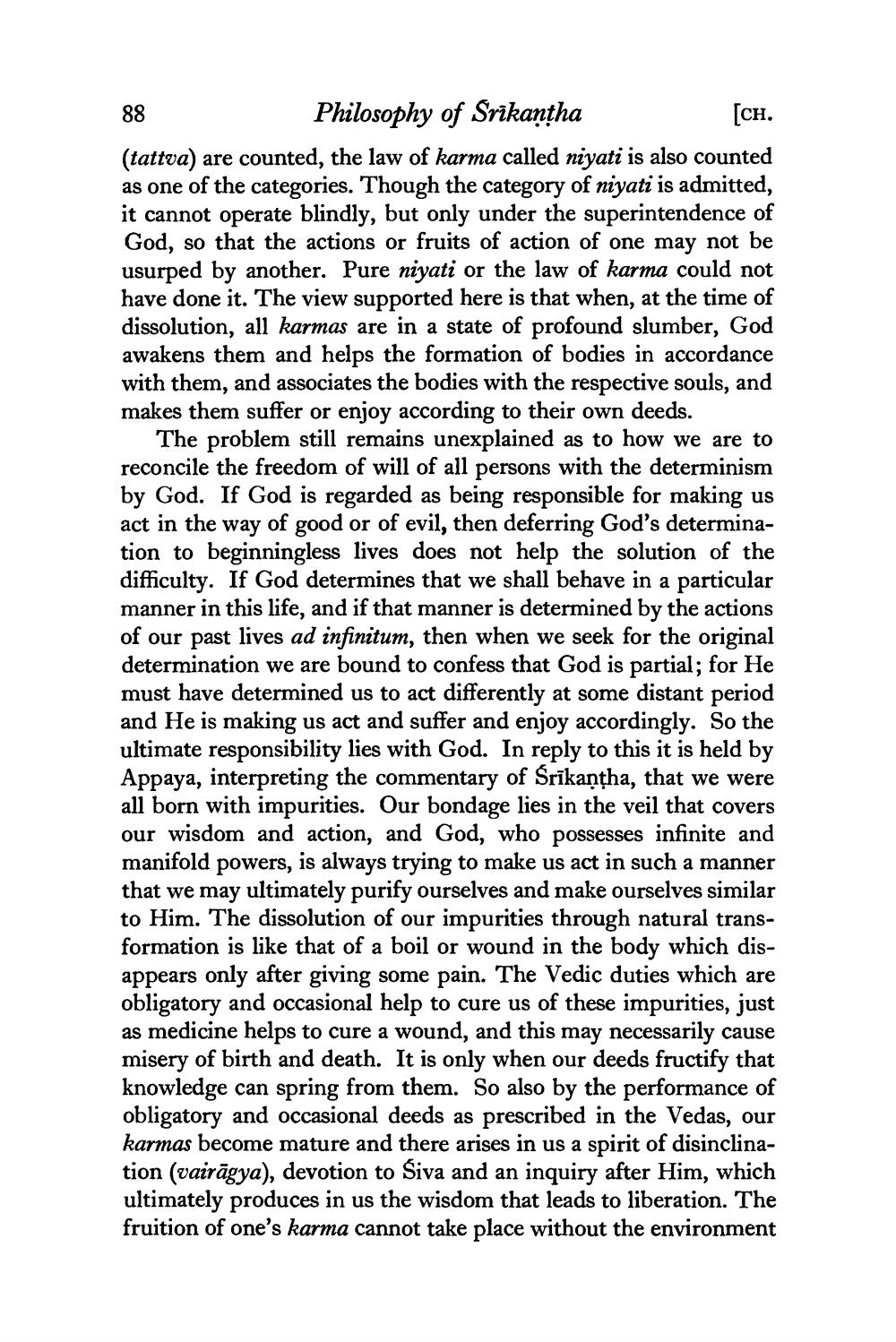________________
Philosophy of Srikantha
[CH. (tattva) are counted, the law of karma called niyati is also counted as one of the categories. Though the category of niyati is admitted, it cannot operate blindly, but only under the superintendence of God, so that the actions or fruits of action of one may not be usurped by another. Pure niyati or the law of karma could not have done it. The view supported here is that when, at the time of dissolution, all karmas are in a state of profound slumber, God awakens them and helps the formation of bodies in accordance with them, and associates the bodies with the respective souls, and makes them suffer or enjoy according to their own deeds.
The problem still remains unexplained as to how we are to reconcile the freedom of will of all persons with the determinism by God. If God is regarded as being responsible for making us act in the way of good or of evil, then deferring God's determination to beginningless lives does not help the solution of the difficulty. If God determines that we shall behave in a particular manner in this life, and if that manner is determined by the actions of our past lives ad infinitum, then when we seek for the original determination we are bound to confess that God is partial; for He must have determined us to act differently at some distant period and He is making us act and suffer and enjoy accordingly. So the ultimate responsibility lies with God. In reply to this it is held by Appaya, interpreting the commentary of Srikantha, that we were all born with impurities. Our bondage lies in the veil that covers our wisdom and action, and God, who possesses infinite and manifold powers, is always trying to make us act in such a manner that we may ultimately purify ourselves and make ourselves similar to Him. The dissolution of our impurities through natural transformation is like that of a boil or wound in the body which disappears only after giving some pain. The Vedic duties which are obligatory and occasional help to cure us of these impurities, just as medicine helps to cure a wound, and this may necessarily cause misery of birth and death. It is only when our deeds fructify that knowledge can spring from them. So also by the performance of obligatory and occasional deeds as prescribed in the Vedas, our karmas become mature and there arises in us a spirit of disinclination (vairāgya), devotion to Siva and an inquiry after Him, which ultimately produces in us the wisdom that leads to liberation. The fruition of one's karma cannot take place without the environment




